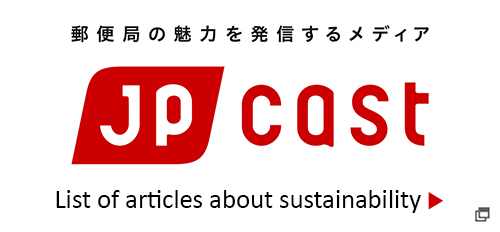- Position:
- Home

- English Home

- JP group Sustainability

- Environment
Environment
We strive to undertake business operations adapted to the impact of climate change and to proactively promote business and environmental conservation activities with the aim of reducing our environmental footprint.
Environmental Management System
We have established a structure for promoting our response to climate change under the supervision of the Board of Directors. The Sustainability Committee deliberates on a strategy and other areas relating to sustainability management.
- Environmental Management System
- Specific Policy on Promotion
- Environmental Management System
- Targets, Results, and Other Matters Related to Climate Change
- GHG Emission Reductions in the Investment Portfolios
- Contribution to Climate Change-related Policies and Engagement with Governments and Others
- Collaboration with External Parties
Climate Change
We are promoting climate change initiatives including GHG emission reductions, having the ultra-long-term target of achieving carbon neutrality by 2050 and the medium-term target for FY2030 as a milestone.
Additionally, we analyze the impact of climate change on our business and disclose information based on the TCFD recommendations.
Pollution and Resources
We work to promote the 3 R's (Reduce, Reuse, Recycle) and efforts to go paperless, to effectively utilize resources, and to reduce waste to use limited resources carefully and to realize a recycle-based society.
Responding to biodiversity conservation
Recognizing the benefit from the ecosystem in the performance of the Group's business activities, we promote initiatives considering the maintenance of ecosystems and preservation of biodiversity and natural resources.




